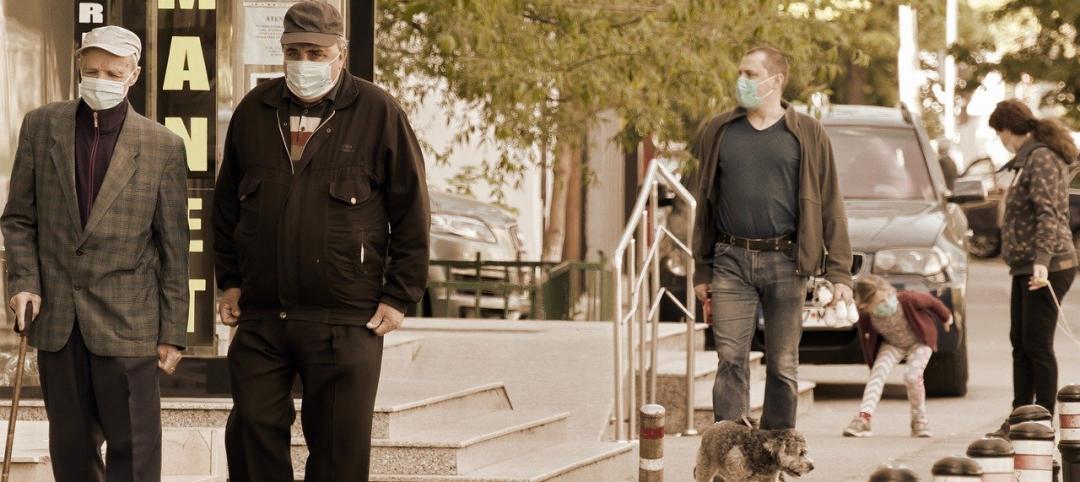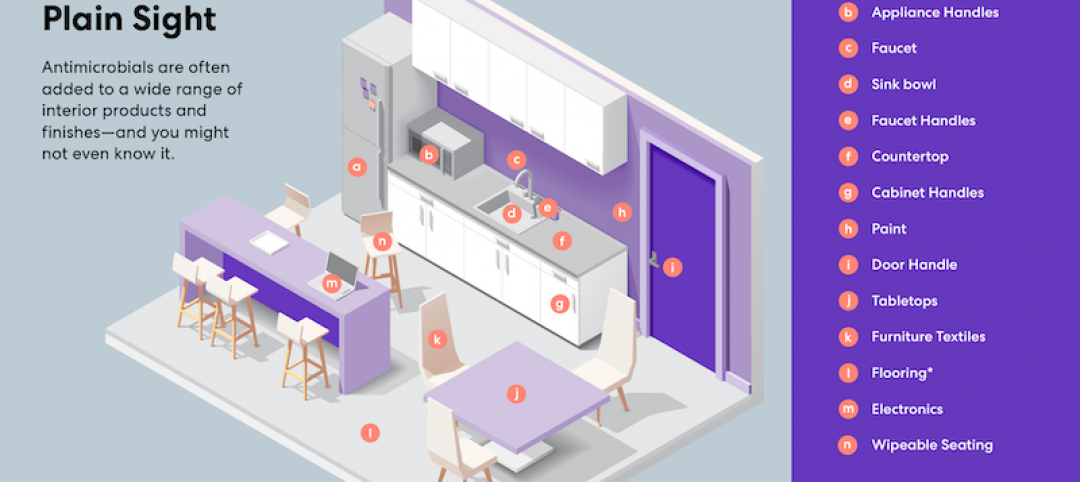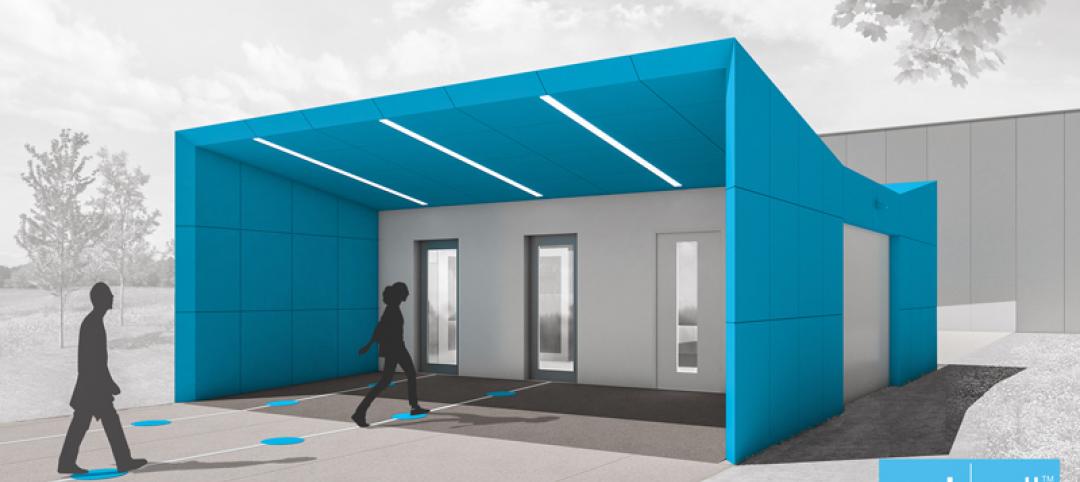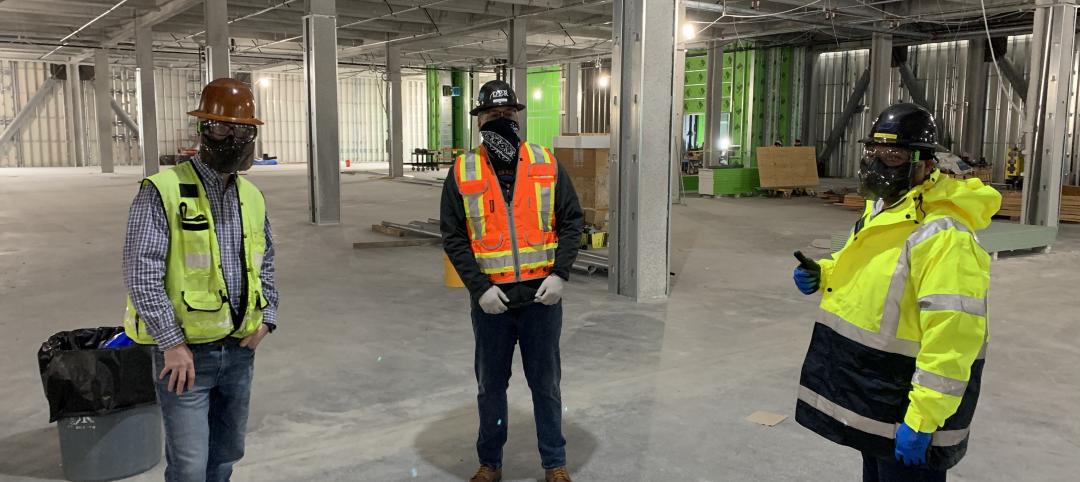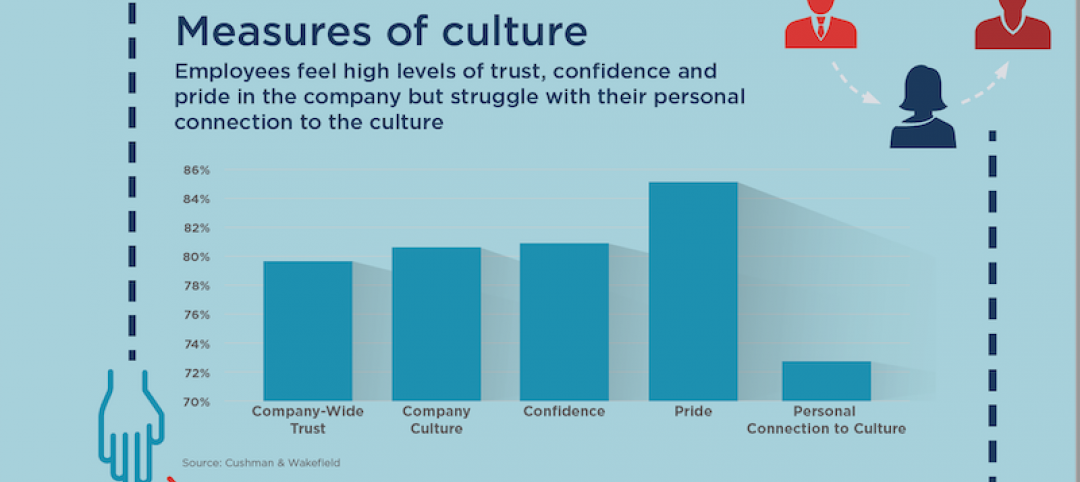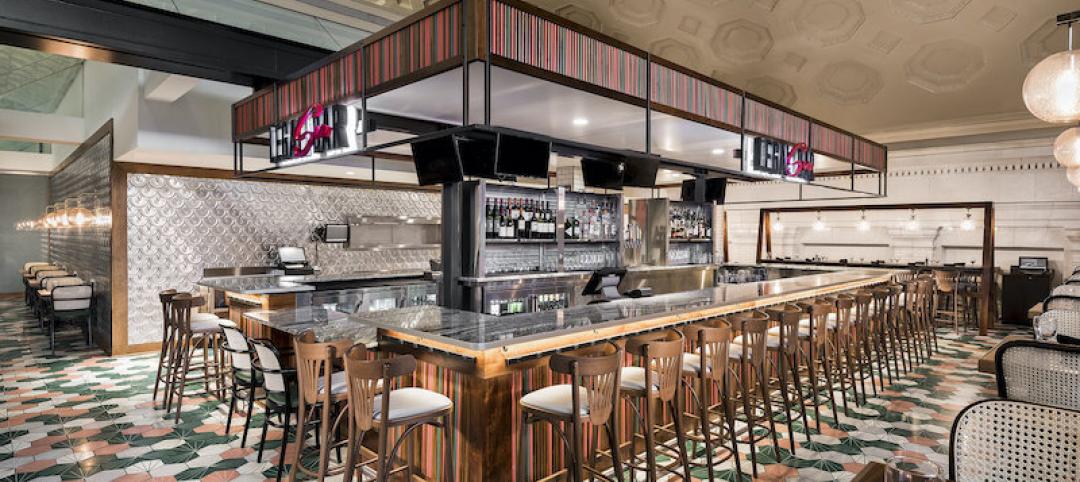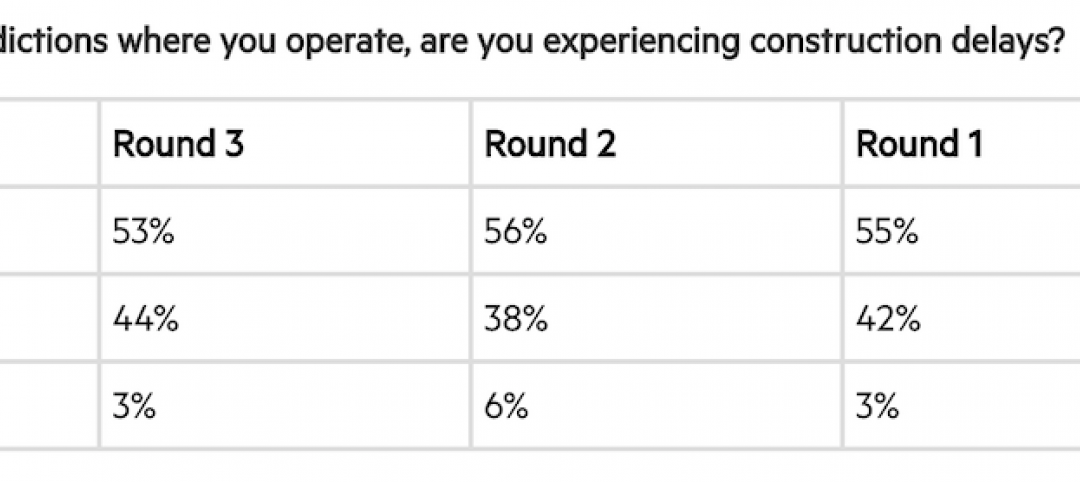Richard Rubin sees the current spate of empty hotels, motels, retail, and office spaces created by the pandemic as opportunities for adaptive reuse to affordable housing, which is in perennially short supply in many markets in the U.S. and around the world.
Rubin is CEO of Repvblik, a Los Angeles-based company that specializes in such conversions. He and his partner Chris Potterpin of PK Housing Michigan—which is part of a multistate property management company that includes a development and construction division—have several hospitality-to-housing projects in the works in the Midwest, including the conversation of a hotel in Stillwater, Okla., to 141 units of student housing located a mile from Oklahoma State University that should be ready for occupancy this fall.
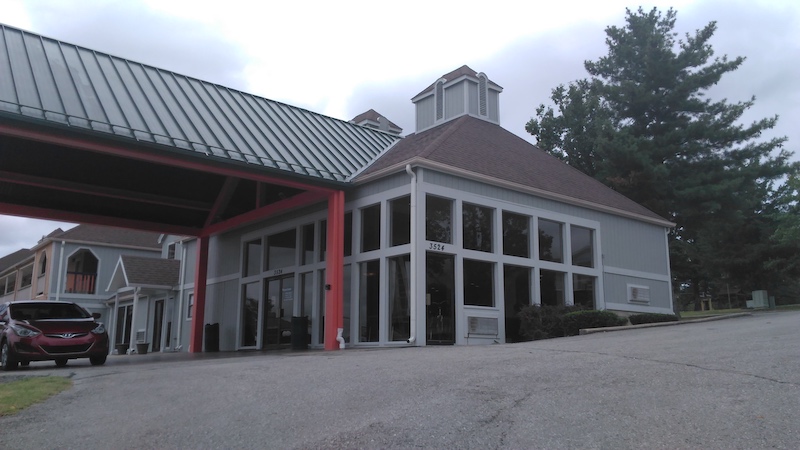 Plato's Cave is an adaptive reuse of a Days Inn in Branson, Mo. When completed it will have 341 rentable apartments, each of which with a kitchen that was installed by the developer. Images: Repvblik
Plato's Cave is an adaptive reuse of a Days Inn in Branson, Mo. When completed it will have 341 rentable apartments, each of which with a kitchen that was installed by the developer. Images: Repvblik
Repvblik’s most ambitious project to date is the conversion of a 420-key Days Inn within six buildings on 14.5 acres in Branson, Mo., which had been vacant for at least eight years, to Plato’s Cave, which when completed next year will offer 341 rentable apartments. The first phase, with nearly 170 units, opened recently and was renting for between $495 and $695 per month. “Branson is leasing very well,” says Rubin in an interview with BD+C last week.
The hotel rooms were 285 sf. Some of the hotel units were combined into one apartment. Repvblik added kitchens, installed sprinklers in four of the buildings, and built a clubhouse, fitness center, and exterior fencing. Rubin estimates that this project, including the amenities, cost between $15,000 and $20,000 per unit converted, with most of the work being done by the company’s internal construction crews. “It’s a heavy lift, but not as heavy as a greenfield project,” he says.
His financing for the projects in Missouri and Oklahoma is a combination of syndicated equity, construction loans, and permanent debt financing.
TRANSFERRING IDEAS FROM HIS HOMELAND
Rubin, a South African, came to the U.S. in 2015 for a student housing conference in Austin, Texas, and decided to stay. (He was particularly attracted to living in southern California.) In the 10 years before his arrival, Rubin was managing director for AENGUS Property Holdings, a “turnkey” developer focused on urban renewal.
He recalls that in the early 2000s, Johannesburg decentralized its business district, which led to a series of company relocations and vacant high rises. Rubin approached REITs that owned some of those high rises about converting their spaces into affordable rental units, which he started doing in 2004. He says that over the following decade, AENGUS converted “several million square feet” of commercial office space into workforce housing.
After he emigrated to the U.S., it took him a few years to get the lay of the land. He and Potterpin formed Repvblik in 2016-17, and the company initially looked for adaptive reuse opportunities in Detroit. The company is now homed in on the Midwest, where Rubin claims there are “hundreds” of hotels and motels that are either vacant because of the COVID-19 virus, semi occupied, or have been closed for several years.
Aside from the Stillwater and Branson projects, Repvblik has two hotel-to-workforce housing conversions in the works in Michigan, and one in Ohio. He declined to specify which markets in each state.
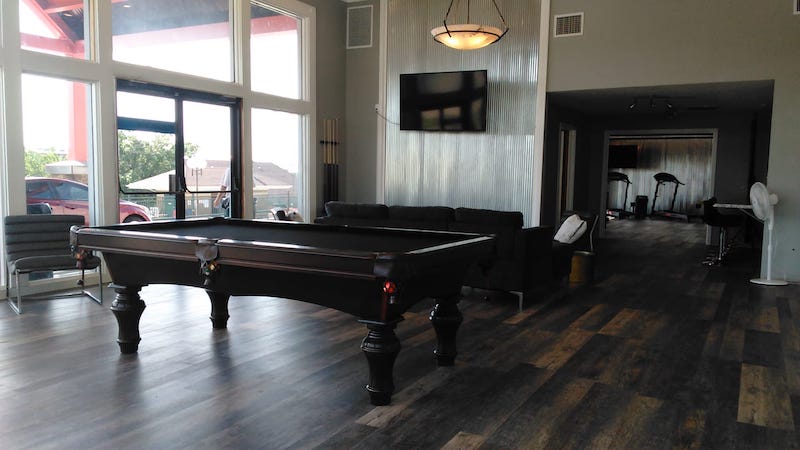 A common area in Plato's Cave includes a billiards table and fitness center. Image: Repvblik
A common area in Plato's Cave includes a billiards table and fitness center. Image: Repvblik
COMPARED TO OTHER CRES, AFFORDABLE HOUSING IS LOOKING BETTER
Putting on his sales cap, Rubin is convinced that now is the time for investors to jump into affordable housing. The conventional places where they might have parked their money previously, like retail malls or hospitality, have been decimated by the pandemic, and there’s no telling what “recovery” will look like for either.
On the other hand, Rubin states, there’s are always opportunities in affordable housing because “there’s so little of it.” Rubin calls this the “missing middle.” And with unemployment at its highest levels in generations, the need to provide individuals and families with places to live they can afford has rarely been more pressing.
Related Stories
Fire and Life Safety | Jun 9, 2020
NFPA develops business reopening checklist for fire and life safety measures
The new checklist helps building owners and facility managers ensure fire and life safety as businesses prepare to re-open amid the coronavirus pandemic.
Coronavirus | Jun 9, 2020
CannonDesign unveils COVID Shield
As the world evolves its response to the COVID-19 pandemic, one clear reality is testing for the virus will be part of our daily lives for the foreseeable future.
Coronavirus | Jun 5, 2020
3 strategies to improve the wellness of building systems and gain tenant trust
Three operational issues that must be prioritized for every building in order to achieve tenant trust are air quality/ventilation, relative humidity, and building commissioning.
Coronavirus | Jun 2, 2020
5 ways to improve hand washing and minimize germs in public restrooms
Bradley Corp. offers five upgrades to make public restrooms more sanitary.
Coronavirus | Jun 2, 2020
Perkins and Will, Healthy Building Network advise against the use of antimicrobial building products
Even during a pandemic, antimicrobial building products may do more harm than good.
Coronavirus | May 30, 2020
A welcoming entry-point for wellness screening anywhere
Modular WorkWell™ ecosystem can process up to 40 people per minute.
Coronavirus | May 29, 2020
Black & Veatch, DPR, Haskell, McCarthy launch COVID-19 construction safety coalition
The NEXT Coalition will challenge engineering and construction firms to enhance health and safety amid the Coronavirus pandemic.
Coronavirus | May 28, 2020
Cushman & Wakefield report examines work-at-home pros and cons
The office, now part of a larger workplace ecosystem, still reinforces employees’ connections with their companies.
Coronavirus | May 27, 2020
Clean is the new Green as U.S. hospitality sector inches closer to reopening
Three design firms share their takes on what will make customers more comfortable about returning.
Coronavirus | May 26, 2020
Multifamily developers report mounting delays in permitting and starts due to coronavirus pandemic
More than half (53%) of multifamily developer respondents reported construction delays in the jurisdictions where they operate, according to the third edition of the National Multifamily Housing Council (NMHC) COVID-19 Construction Survey.


